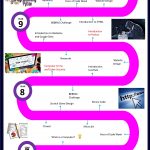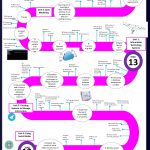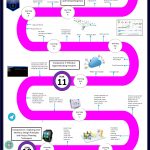Computer Science and Information Technology
The Computing department is a high achieving and successful department. We believe that every student should be prepared to function in the ever developing digital world. The courses offered at GCSE and A Level provide students with the skills and understanding to unlock various opportunities in higher education, leading to future career success.
Intent
At Weatherhead High School, Computing is a compulsory part of the KS3 curriculum with the students having a weekly lesson. At KS4 and KS5, Computer Science is an option which all students can select to take. In addition, the department offers Digital Information Technology as a further optional subject at KS4.
Our intent is to provide an interesting and relevant curriculum supported by regular reference to real-life examples from business and industry plus scenarios to simulate computing issues such as cybercrime. Teachers collaborate on all aspects of the Computer Science curriculum across the key stages to share best practice and, importantly, knowledge and understanding.
At KS3, the Computing curriculum focuses on the progression of skills in digital literacy, computer science and information technology, to build on those skills delivered during KS2 when following the Computing National Curriculum. The structure of delivery means students experience a broad curriculum covering various strands such as hardware and software, computational models to simulate real-life situations, programming languages e.g. Python, Boolean logic e.g. using the BBC Micro:bit, binary code and creative media skills. The aims being to ensure that students become competent in safely using, as well as understanding, the different aspects of Computing.
These various strands are studied through a range of relevant themes during Key Stage 3 to ensure that learning is embedded, key skills are developed, and mastery is constantly improved. The core value of resilience runs through the department in terms of lesson delivery and ongoing assessment to support this focus on mastery.
At KS4, students can opt for GCSE Computer Science (OCR) which is delivered via a number of modules to cover the two external exams the students take in Year 11. The BTEC Tech in Digital Information Technology (Pearson) is delivered via three components including two coursework components and an external examination. These courses both provide a thorough grounding in the subject to allow them to successfully move on to take these courses at KS5.
In the Sixth Form, students can opt for A Level Computer Science (OCR) which is delivered via the teaching of two components. They also complete an individual computing project where the students have to apply the principles of computational thinking to a practical coding problem.
The focus is on developing well-rounded users of computers and technology who then have the opportunity to develop their skills further at degree level or through the completion of a related apprenticeship role.
Overall, the focus is on an inclusive curriculum which means that all students, irrespective of background, have the opportunity to succeed throughout KS3 and when taking optional subjects in the department at KS4 or KS5.
Implementation
The whole curriculum is shaped by our school vision to provide a rich, innovative and inclusive curriculum which aims to enable all students, regardless of background, ability or additional needs, to flourish to become competent users of computer technology in all its forms. Teachers set high expectations and this focus allows students to work towards achieving their full potential at KS3 and success in both coursework and examination units at KS4 and KS5.
Teachers provide a wealth of expertise in terms of knowledge and understanding of the KS4 and KS5 qualifications with staffing planned to play to specific teacher’s strengths. This allows teachers to bring the subject alive with personal experiences in industry, real life examples and suitable scenarios to support teaching and learning. The department is resource rich in terms of textbooks, teaching resources, revision materials, online digital platforms and literacy resources to aid learning and subject mastery.
Within the Computing curriculum, the department teaches content to cover all areas of the Computing National Curriculum at KS3, supported by clear skills development, for example Python coding skills, and knowledge progression throughout Years 7 to 9. This ensures that skills and knowledge are built on year by year through ½ termly modules and sequenced appropriately to maximise learning for all students across all ability levels. To ensure a broad range of skills and understanding, Computing is taught across the three National Curriculum strands of Computer Science, Information Technology and Digital Literacy.
At KS4, in GCSE Computer Science, students are taught to understand and apply the fundamental principles and concepts of Computer Science, including abstraction, logic, algorithms and data representation. They also learn to analyse computational problems such as through the use of coding to write computer programs to provide solutions to various scenarios. Group work plays a key part in lessons with the students often given group tasks with the outcomes reported back to the class. Assessment occurs on a regular basis to check on mastery of each element of the syllabus with teachers constantly updating planning to revisit any areas of weakness.
At KS5, A Level Computer Science expands students’ knowledge and understanding through the delivery of key component theory. Students are encouraged to draw on this underpinning theory when studying computational thinking, developing programming techniques and devising their own programming approach in the programming project. Alongside termly exam papers, assessment takes place on a regular basis at the end of each topic. Great emphasis is placed on students taking responsibility for their learning through expanding their subject knowledge outside of the classroom.
In terms of vocational qualifications, the BTEC Tech Digital Information Technology course at KS4 allows students to take a more practical approach to developing knowledge and understanding. The coursework units for this qualification are graded from Pass to Distinction, with samples selected for internal verification to ensure grading standards are constantly maintained. There is also an annual standards verification process administered by Pearson to confirm grading is accurate, and in line with national standards.
During the delivery of examined units, teachers work towards delivering mastery of the unit content. This is achieved through the lesson delivery, task set, outcomes assessed and additional support including support clinics, revision sessions, Easter school and master classes prior to examinations.
Impact
The impact of KS3 Computing delivery shows that students are equipped with valuable skills which will support their learning at KS4 and beyond such as through an understanding of the use of spreadsheet modeling or multimedia design skills. Other important areas include the benefits and risks of social media or online communication, to allow them to make informed decisions about how to behave online on a personal basis or when in employment.
Computer Science has been a popular subject at KS5. The success of the students is monitored throughout each year via analysis of outcomes compared to target grades, actions being put in place where required to ensure overall success. The impact of the curriculum is constantly reviewed via progress data, assessment results, mock examinations and student voice plus consideration of students’ destinations each summer.
With reference to BTEC qualifications, the standards verification reports provided by Pearson for both the BTEC Tech in Digital Information Technology and the BTEC National in Information Technology highlight students’ evidence as being accurately assessed and often classed as exemplary in terms of Distinction level grading. Performance in the examination series for BTECs continues to be very good, putting most students on track for at least achieving their target grades every year.
The department regularly teaches students who are first generation in terms of the transition to university following successful performance at KS5. In the present A Level Computer Science class, the majority of students have applied to take a Computing related degree course next year.
The destinations of students taking A Level Computer Science or BTEC National Information Technology have recently included:
- Liverpool University – Computer Science
- University of Chester – Games Development
- Liverpool John Moores University – Computing
- Edge Hill University – Computing
- NHS Apprenticeship – IT Network Management
- Liverpool John Moores University – Computer Games Development
- University of Nottingham – Computer Science
- Liverpool John Moores University – Computer Science
- University of York – Computer Science & Cyber Security
- ACM (The Academy of Contemporary Music) – Game Development: Art
- University of Liverpool – Computer Science with Software Development with a Year in Industry
Teaching Team
The Computing department is staffed by a hardworking and committed team of four teachers. Student attainment is high, at all levels with GCSE and A level performance above the national average. The courses we offer are extremely popular at Key Stage 4 with a significant number going on to study these courses in the Sixth Form too. The department is constantly striving to raise attainment through curriculum development; focusing on sharing good practice and resources within our team and we utilise up to date research to inform and improve our teaching and learning strategies. Continued evaluation of all aspects of the department allow us to support all students to realise their full potential.
Facilities
The department is made up of 5 classrooms which are fully equipped with up to date teaching technology, including an HD visualiser and 20+ desktop computers with a range of software applications and full access to the internet. There is also a 20 unit laptop trolley available within the department for classroom use so every student has their own computer in every lesson. The department are at the forefront of remote learning and E-learning strategies, leading the way with the use of Google Classroom to extend learning beyond the physical classroom.
Support
The ICT classrooms are available within the department at lunch time and after school to allow students to gain additional help and guidance and also continue with their practical work. We also encourage all students to explore and develop their ICT and computing skills at home. There are also extra revision clinics available for all students before they sit their GCSE and Advanced Level examinations.
Extra-Curricular
There are a wide range of popular extra-curricular events including Computer Science Club and a wealth of clinics/support sessions for each course on offer. A further important focus is on enrichment opportunities and these include the Hour of Code and UK Bebras Challenge, which are both completed by all students in Key Stage 3.
Industry Links
Links with industry are a vital part of the study of Computing and Business and the department has developed important links with many business organisations including local, national and internationally renowned companies across an array of business sectors, including Unilever, UK Fast, Inn2 Web Design, Owen Drew Candles, Hoylake Sailing School and John Percival Associates.
The Computing department is a high achieving and successful department. We believe that every student should be prepared to function in the ever developing digital world. The courses offered at GCSE, BTEC and A Level provide students with the skills and understanding to unlock various opportunities in higher education, leading to future career success.




